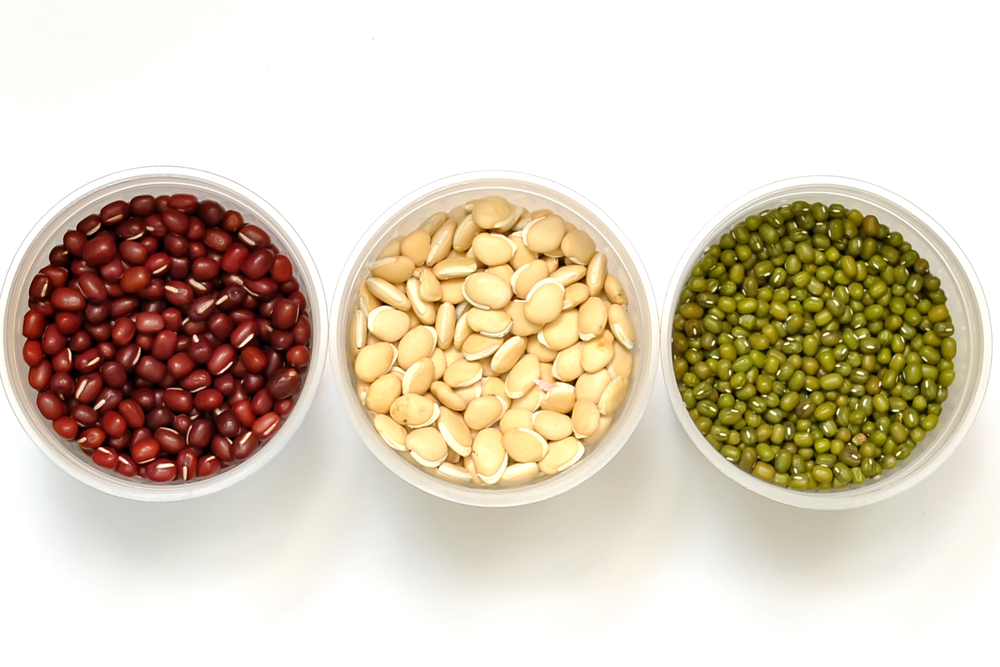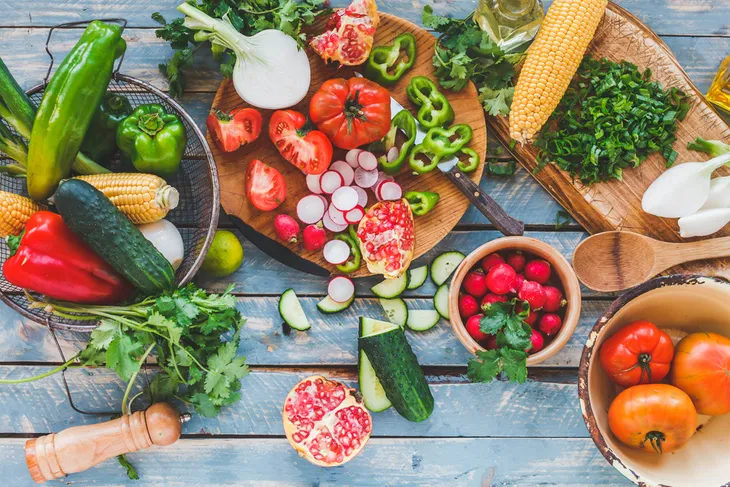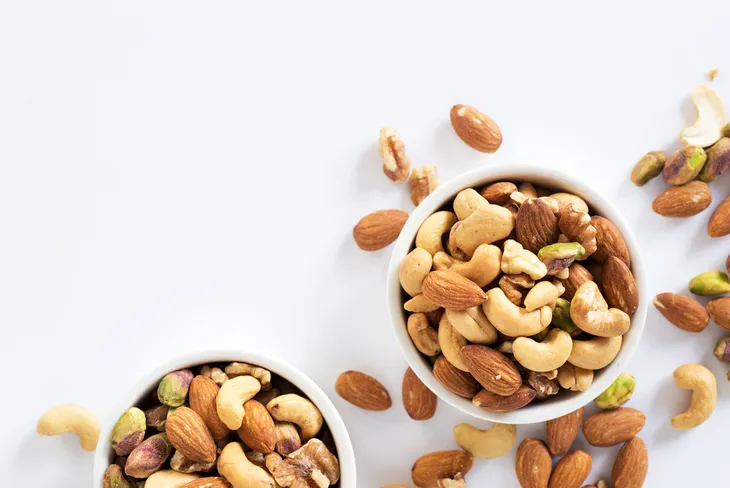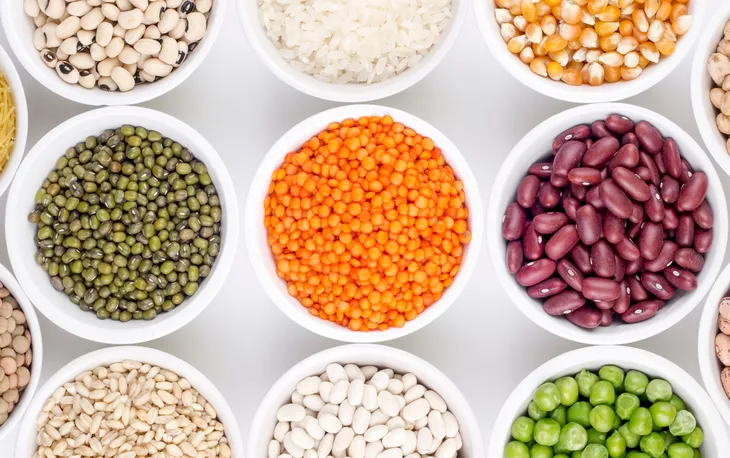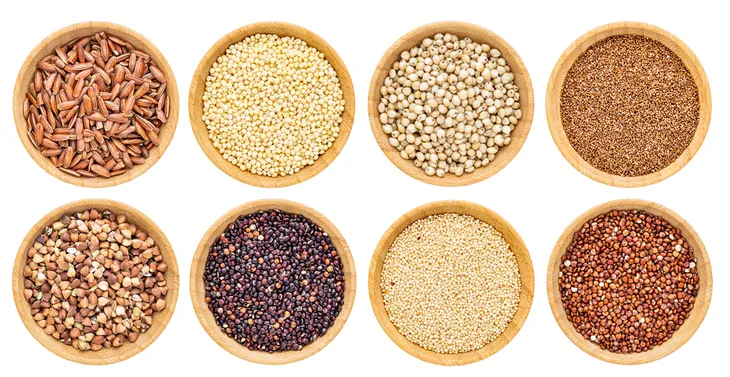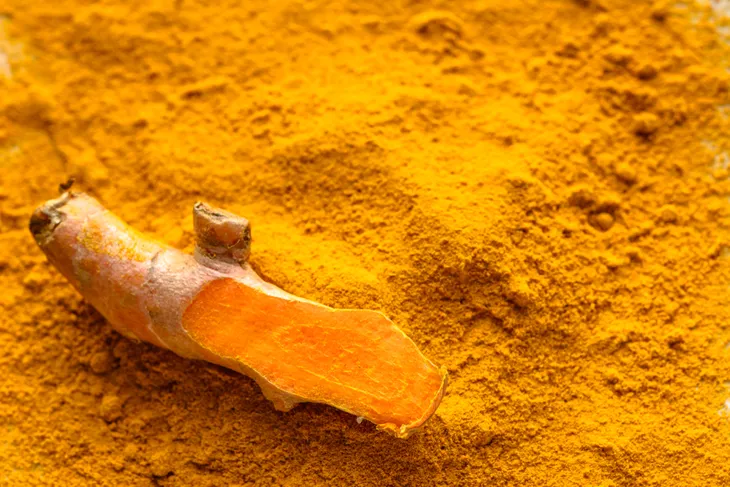There are some lifestyle changes you can make to lower your chances of developing lung cancer, the biggest, of course is quitting smoking. You probably already know that; but did you know there are some foods that can actually lower your lung cancer risk too?
It may seem strange that what you put into your stomach can dictate the future of your lungs, but many sources point out the healthy contents of some foods that lower cancer risk (among other benefits). Let’s digest these six foods that can lower lung cancer risk…
1. Bright Fruits and Vegetables
This is a bright way to stay healthy and keep cancer at bay, notes Livestrong.com. It’s thanks to the antioxidants in these types of fruits and veggies, in particular vitamin A and C. Low concentrations of those vitamins has been linked to a higher risk of lung cancer, it adds.
Livestrong explains that almost all fruits and vegetables have some antioxidant properties, but the brighter the better. Think tomatoes, berries, winter squash and bell peppers, it suggests. Fruits and vegetables are also a healthy way for your body to get carbohydrates.
2. Nuts
OncologyNurseAdvisor.com explains that going nuts on nuts can have a positive effect on lung cancer risk. This holds true “irrespective of cigarette smoking status and other known risk factors,” says the source, which cites a study published in Cancer Epidemiology, Biomarkers & Prevention.
The source says about 2,100-cases in an Environment And Genetics in Lung cancer Etiology (EAGLE) study and another 18,500-cases in an American Association of Retired Persons (AARP) Diet and Health Study were assessed for dietary habits. In the EAGLE study alone, subjects in the highest quintile (top fifth) of nut consumption showed a 26-percent lower risk of lung cancer, notes the source. Big benefits were shown for smokers eating a lot of nuts as well.
3. Fish
FoodandHealth.com says that saturated fats found in animal meat can lead to a higher risk of lung cancer, but that’s not the case with fish, which is generally rich in Omega-3 fatty acids, the kind of fats you want in your body (as opposed to saturated fats).
Which fish has the most benefits? Eating salmon, mackerel, and tuna should go swimmingly when it comes to lowering cancer risk, says the source. If you’re not into eating red meat or fish at all, then perhaps look at the next option.
4. Beans
A BBC article way back in 2005 already purported the benefits of consuming beans (and soy) as way to stave off lung cancer. The article looked at a recent study of more than 3,000-Americans that showed a link between bean/soy consumption and less lung cancer incidents.
“The protective effect, thought to be down to oestrogen (estrogen in the U.S.)-like compounds within the foods, appeared to reduce cancer risk by as much as 46-percent,” says the source. These plant-derived estrogen-like compounds are called phytoestrogens, and they have been “shown to protect against some tumours in past studies,” it explains.
5. Whole Grains
Stay away from white bread, white rice and “white” pasta, and look more towards whole grain alternatives (including quinoa and oats), suggests Livestrong.com. “Whole grains provide carbohydrates and more nutrients, including antioxidants, than refined grains,” notes the source.
The source cites a study published in Circulation in 2008 that analyzed the eating habits and cases of cancer and heart disease of more than 72,000-women over an 18-year time span. “Researchers found a strong link between a diet rich in fruits, vegetables and whole grains and a reduced risk for cancer, heart disease and mortality,” it explains. Unfortunately, most American diets are high in refined grains and unhealthy fats, adds the source.
6. Curry
If you’re looking for a spicier way to improve lung cancer prevention, then curry spice may be an answer, according to an article in The Guardian. The active agent of turmeric – “the spice that colours and flavours many Asian meals” – appears to have cancer-fighting properties, it says.
However, getting Indian takeout food every day is probably not a good choice (although a delicious one) as it’s quite fatty, warns the source. The team in the study was looking at developing a supplement in tablet form to get the benefits without the side effects, like developing heart disease, for example. The article from 2005 talks about building on evidence of turmeric in avoiding cancers such as leukemia, prostate cancer, skin cancer and colon cancer, but more recent posts from sources mention its benefits to prevent lung cancer too.
